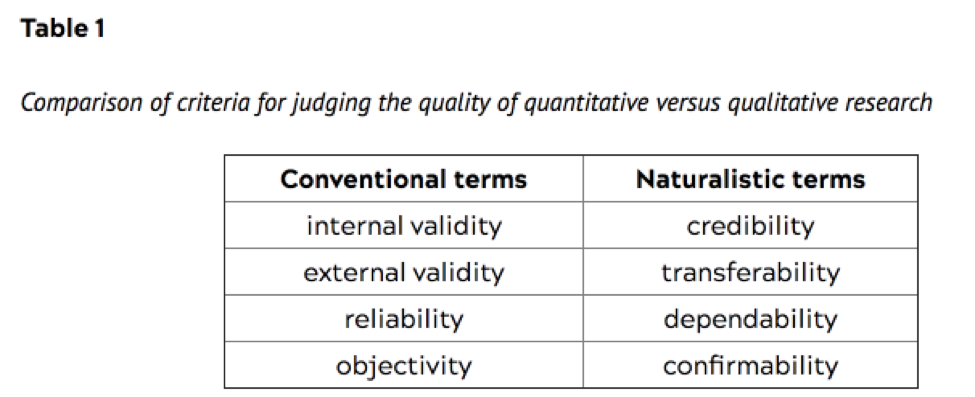As an undergraduate science major, I came to understand quantitative data; we measured what we observed in the laboratory and in the field and we summarized and evaluated it to draw conclusions about the world as we saw it. Patterns in numbers were our window into the systems we studied.
As a graduate student in education, I came to understand qualitative data; we listened and read in the field and we summarized and analyzed our observations about the world. Patterns in what people said and recorded in documents were our window into the systems we studied.
For researchers who seek to understand the systems that make them curious, the decision to use quantitative versus qualitative methods typically depends on their stance towards those systems:
- Quantitative researchers seek to reduce and control variables so that they can draw conclusions about those individual variables and how changing them affects the rest of the system.
- Qualitative researchers seek to study systems as they occur, so the many variables (both known and unknown) are allowed to affect the systems and Naturalistic observations are made.
Regardless of the type of data gathered, researchers take steps to ensure their data is of high quality, they evaluate the quality of their data when reporting it, and they assess the quality of others’ research when they review or consume research. Because of the fundamental differences in the nature of the data, we must use different concepts (and terms) to differentiate the characteristics of high quality quantitative and qualitative data.
For more than 20 years, I have used Hoepfl’s (1997) “Choosing Qualitative Research: A Primer for Technology Education” Researchers” whenever I needed to introduce others (or remind myself) of what constitutes high-quality data. I have adapted the Hoepfl’s Table 1.

References:
Hoepfl, M. (1997). Choosing qualitative research: A primer for technology education researchers. Journal of Technology Education 9(1).
Phillips, D. C. (1990). Subjectivity and objectivity: An objective inquiry. In Eisner and Peshkin (Eds.) Qualitative inquiry in education: The continuing debate (pp. 19-37). New York: Teachers College Press.